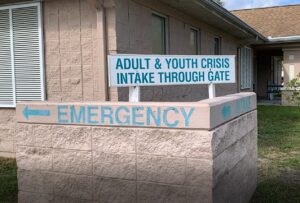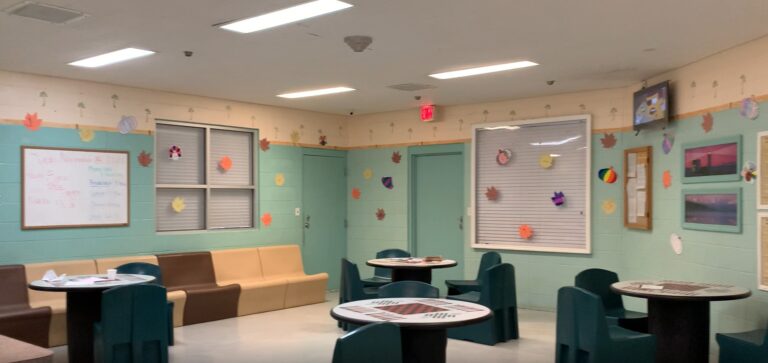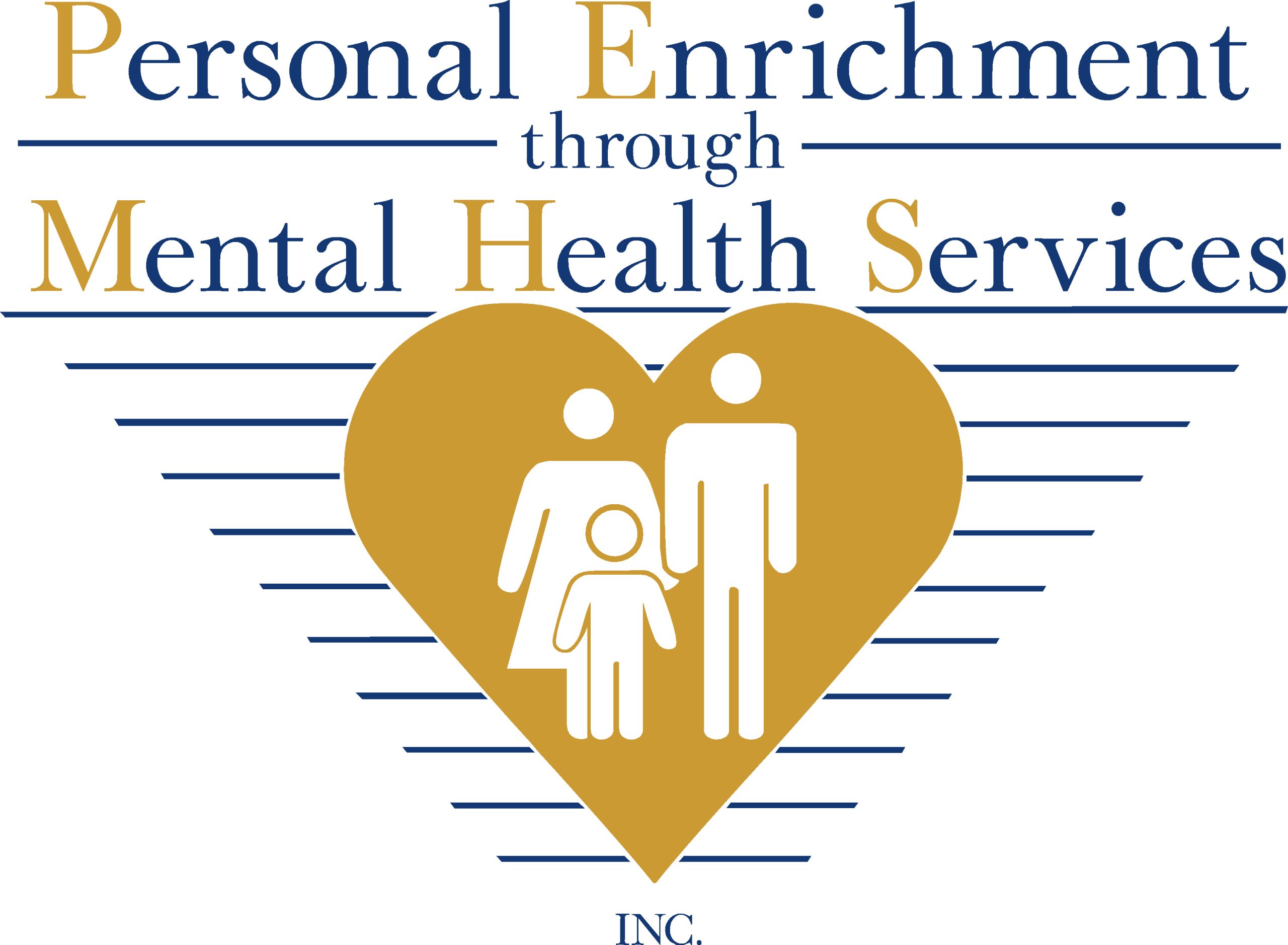Crisis Stabilization Unit (CSU)
Provides brief, intensive services for adults in crisis including diagnoses, medication, health education, individual and group therapy, discharge and aftercare planning.
Crisis Stabilization Unit (CSU) Adults
The Crisis Stabilization Unit is designed to provide quality, comprehensive care for those in the community who are in need of stabilization in a structured, secure setting. Separate facilities which provide brief, intensive services for adults in crisis that include diagnoses, medication, and health education, as well as individual and group therapies, recreational activities, and discharge planning. The program is designed to assess the need for current treatment and symptom alleviation. The program is not intended to provide an alternative placement when criteria for admission and/or evaluation is no longer being met. The goal of the program is to return the individual to their home or to the least restrictive setting availability.
Services are available to all individuals 18 years of age or older who are in mental health crises while meeting the criteria as set forth by the Florida Mental Health Law, regardless of their ability to pay. Clients must also meet the medical clearance policy criteria. Services are offered via a multidisciplinary team of professionals dedicated to providing person-centered services that support self-determination, recovery, and resilience for those challenged with mental health disorders.

Initial assessment to assist in the psychiatric evaluation process to determine if the criteria for admission under FS 394 are met (completed at intake in Emergency Services/Access Center).
o Medical status and history assessment by a licensed nurse
o Psychiatric history and evaluation completed by a psychiatrist
o A physical history and examination completed by a medical doctor
o Discharge planning, information and referral, education, and referral linkage
o Individual and group therapy by a clinically trained therapist
o Recreational activities and milieu groups
Our funding source is the Department of Children and Families managed by Central Florida Behavioral Health Network.
Notifying the Public of Rights Under Title VI
Personal Enrichment through Mental Health Services, Inc.
- PEMHS operates its programs and services without regard to race, color, and national origin in accordance with Title VI of the Civil Rights Act. Any person who believes she or he has been aggrieved by any unlawful discriminatory practice under Title VI may file a complaint PEMHS.
- For more information on PEMHS civil rights program, and the procedures to file a complaint, contact 727-362-4331, (TTY 727-362-4331); email salbert@pemhs.org; or visit our administrative office at 11254 58th Street North Pinellas Park, FL 33782. For more information, visit pemhs.org.
- A complainant may file a complaint directly with the Federal Transit Administration by filing a complaint with the Office of Civil Rights, Attention: Title VI Program Coordinator, East Building, 5 Floor-TCR, 1200 New Jersey Ave., SE, Washington, DC 20590
- If information is needed in another language, contact 727-362-4331.
*Si necesita información en otro idioma, comuníquese con 727.362.4331.
*Si w bezwen enfòmasyon nan yon lòt lang, kontakte 727.362.4331.
Children’s Screening and Stabilization (CSSU)
Provides a safe environment for children in crisis who need brief, intensive intervention through inpatient care.
For more information contact: Karen Rogari, Director of Behavioral Health Services

The Children’s Screening and Stabilization Unit is designed to provide quality, comprehensive care for those in the community who are in need of stabilization in a structured, secure setting. The intent of the CSSU is to provide a brief, intensive services for children and adolescents in crisis such as diagnoses, medication, health education, individual and group therapies, recreational activities, and discharge planning. The program is designed to assess the need for current treatment and symptom alleviation. The program is not intended to provide an alternative placement when criteria for admission and/or evaluation are no longer being met. The goal of the program is to return the individual to their home or to the least restrictive setting availability.

Services are available to all individuals under the age of 18 in mental health crises while meeting the criteria as set forth by the Florida Mental Health Law, regardless of their ability to pay. Clients must also meet the medical clearance policy criteria.
Services are offered by a multidisciplinary team of professionals dedicated to providing person-centered services that support self-determination, recovery, and resilience for those challenged with mental health disorders.
o Initial assessment to assist in the psychiatric evaluation process to determine if the criteria for admission under FS 394 are met (completed at intake in Emergency Services/Access Center
o Medical status and history assessment by a licensed nurse
o Psychiatric history and evaluation completed by a psychiatrist
o A physical history and examination completed by a medical doctor
o Discharge planning, information and referral, education, and referral linkage
o Individual and group therapy by a clinically trained therapist
o Recreational activities and milieu groups.
Discharge Planning begins at the time of admission. In order to ensure the integration of recovery, discharge planning is individualized and client-centered. Family and natural support involvement are crucial to successful treatment outcomes. Discharge Planning will deliberately reflect the client/family’s culture, personal characteristics, and views. The client will lead the discharge planning process.
The discharge planning process includes the following concepts:
• Planning begins at admission;
• Includes an ongoing discussion with the client and family as part of the Plan of Care Review;
• Includes active involvement of the client and available support.
• Includes an aftercare plan developed in collaboration with the appropriate level of care in the least restricted environment.
This program is funded by the Department of Children and Families and managed by Central Florida Behavioral Health Network. Accepted insurances.

